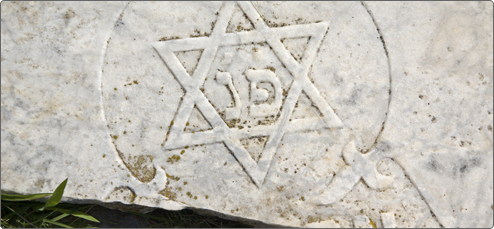
Jewish Funeral
Traditions for Orthodox, Conservative, and Reform Jews are
different. But in all, attention is given to the grieving family,
who stay home in mourning for a set period of days (Shiva).
Male guests attending a service are expected to wear a jacket
and tie with a yarmulke. Women dress conservatively, but are not
expected to wear a head covering.
In the Orthodox and Conservative congregations, funerals take
place one or two days after death. A holy society cleans and bathes
the body, dressing it in white linen. Burial is in a wooden casket
with no metal (including no metal handles or nails). Flowers are
normally not sent to keep the funeral as simple as possible.
At the funeral, an article of clothing will be torn by the
immediate family (called Keria). At the burial, guests will
ritually wash their hands as they leave the cemetery. The Shiva
begins immediately after the burial and continues for seven days.
Friends and family bring food; the immediate family, for the most
part, stays at home for the seven days, avoiding work and taking
telephone calls. Every evening, close friends visit and sit with
the family.
Reform Jews will have a service in a funeral home or temple;
often, the rabbi will stop by during Shiva to lead a minyan in the
Mourner's Kaddish, a prayer for mourning.